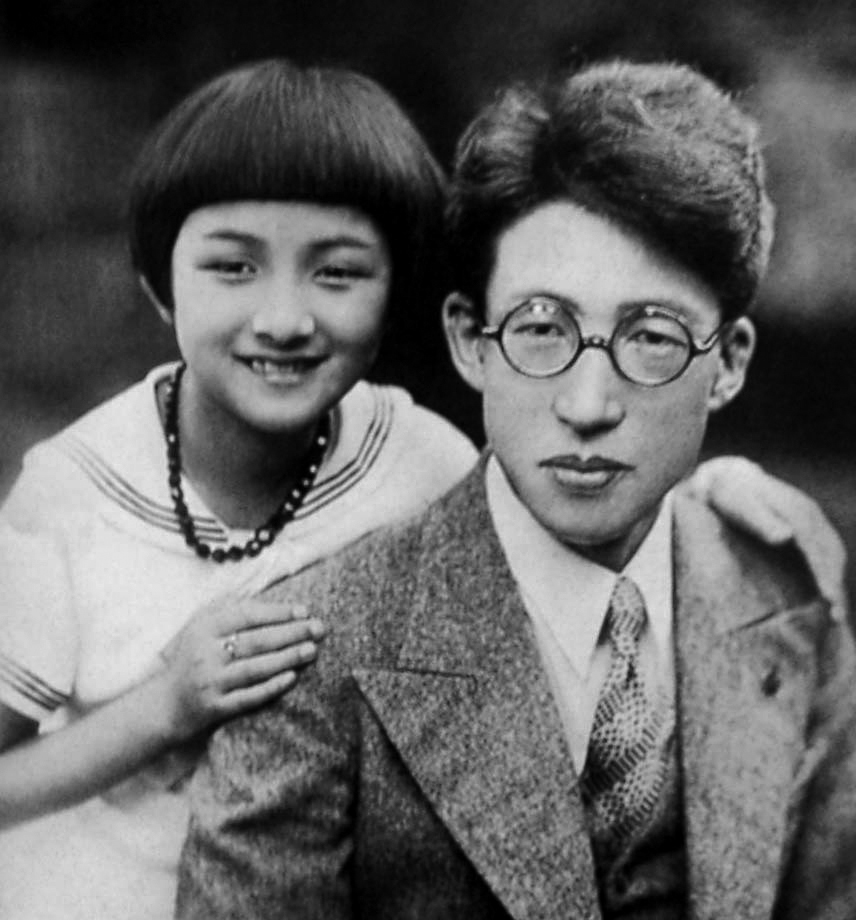|
Ginza Kankan Musume (song)
is a popular song composed by Ryōichi Hattori, with lyrics by Takao Saeki. It was recorded by Hideko Takamine and released in April 1949. Background "Ginza Kankan Musume" is the theme song of the film of the same name, released in August 1949 and starring Hideko Takamine. The song's B-side, "Waga Yume, Waga Uta", is sung by Katsuhiko Haida, who also starred in the film. The phrase kankan musume is a play on words coined by Kajirō Yamamoto was a Japanese film director, screenwriter, and actor who was known for his war films and comedies and as the mentor of Akira Kurosawa. The combined list of his efforts as a director for documentaries, silent, and sound films includes over 90 fi ... that combines can-can with pan pan musume. According to Victor Records, the song had sold 420,000 copies by 1952. References Japanese songs 1949 songs {{1940s-song-stub ... [...More Info...] [...Related Items...] OR: [Wikipedia] [Google] [Baidu] |
Hideko Takamine
was a Japanese actress who began as a child actress and maintained her fame in a career that spanned 50 years. She is particularly known for her collaborations with directors Mikio Naruse and Keisuke Kinoshita, with ''Twenty-Four Eyes'' (1954) and ''Floating Clouds'' (1955) being among her most noted films. Biography Takamine was born in Hakodate, Hokkaidō, in 1924. At the age of four, following the death of her mother, she was placed in the care of her aunt in Tokyo. Her first role was in the Shochiku studio's 1929 film ''Mother'' (''Haha''), which brought her tremendous popularity as a child actor. Many of the films of her early career were imitations of Shirley Temple films. After moving to the Toho studio in 1937, her dramatic roles in Kajirō Yamamoto's ''Tsuzurikata kyōshitsu'' (1938) and ''Horse'' (1941) brought her added fame as a girl star. She toured as a singer to entertain Japanese troops and, after the war, sang for American occupation troops in Tokyo. After ini ... [...More Info...] [...Related Items...] OR: [Wikipedia] [Google] [Baidu] |
Ryūkōka
is a Japanese music genre, musical genre. The term originally denoted any kind of "popular music" in Japanese, and is the East Asian cultural sphere, sinic reading of ''hayariuta'', used for commercial music of Edo period, Edo Period. Therefore, ''imayō'', which was promoted by Emperor Go-Shirakawa in the Heian period, was a kind of ''ryūkōka''. Today, however, ''ryūkōka'' refers specifically to Japanese popular music from the late 1920s through the early 1960s. Some of the roots of ''ryūkōka'' were developed from Western classical music. ''Ryūkōka'' ultimately split into two genres: ''enka'' and ''poppusu''. Unlike ''enka'', archetypal ''ryūkōka'' songs did not use the ''kobushi'' method of singing. ''Ryūkōka'' used legato. Bin Uehara and Yoshio Tabata are considered to be among the founders of the modern style of ''kobushi'' singing. Many composers and singers of ''ryūkōka'' went on to earn official distinctions; Ichiro Fujiyama and composers Masao Koga and Ryoich ... [...More Info...] [...Related Items...] OR: [Wikipedia] [Google] [Baidu] |
JVC Kenwood Victor Entertainment
, also known as in Japan, is a subsidiary of JVCKenwood that produces and distributes music, movies and other entertainment products such as anime and television shows in Japan. It is known as JVC Entertainment in countries where Sony Music Entertainment operates the RCA Victor label. History *April 1972: is spun off as a subsidiary of JVC. *September 30, 1982: JVC Musical Industries, Inc. is founded in the U.S. *February 1984: The sales and marketing department of JVC is spun off as . *January 1990: JVC Musical Industries announces its first video game release will be ''Boulder Dash''. *October 30, 1991: JVC Musical Industries Europe, Ltd. is founded. *April 1993: Nihon AVC and Victor Musical Industries merge and the name is changed to *October 1, 1996: Victor Interactive Software takes over video game-related activities after Pack-In-Video is merged with Victor Entertainment. *May 1, 1997: JVC Musical Industries is renamed to JVC Music, Inc. *May 14, 1997: JVC Musical Indust ... [...More Info...] [...Related Items...] OR: [Wikipedia] [Google] [Baidu] |
Ryōichi Hattori
was a Japanese pop and jazz composer. Katsuhisa Hattori is his son. He had a great influence on Japanese pop and was awarded the People's Honor Award. Japanese jazz was downtrodden during World War II, but he created a jazz boom after the war. He composed many songs for various artists such as Noriko Awaya, Shizuko Kasagi, Ichimaru and Ichirō Fujiyama. He also composed Li Xianglan was a Japanese singer, actress, journalist, and politician. Born in China, she made an international career in film in China, Hong Kong, Japan and the United States. Early in her career, the Manchukuo Film Association concealed her Japanese ori ...'s song , which has remained controversial in China despite not being a militaristic song. References {{DEFAULTSORT:Hattori, Ryoichi 1907 births 1993 deaths 20th-century Japanese musicians 20th-century jazz composers Japanese jazz composers Male jazz composers Musicians from Osaka People's Honour Award winners 20th-century Japanese male musici ... [...More Info...] [...Related Items...] OR: [Wikipedia] [Google] [Baidu] |
Popular Music
Popular music is music with wide appeal that is typically distributed to large audiences through the music industry. These forms and styles can be enjoyed and performed by people with little or no musical training.Popular Music. (2015). ''Funk & Wagnalls New World Encyclopedia'' It stands in contrast to both art music and traditional or "folk" music. Art music was historically disseminated through the performances of written music, although since the beginning of the recording industry, it is also disseminated through recordings. Traditional music forms such as early blues songs or hymns were passed along orally, or to smaller, local audiences. The original application of the term is to music of the 1880s Tin Pan Alley period in the United States. Although popular music sometimes is known as "pop music", the two terms are not interchangeable. Popular music is a generic term for a wide variety of genres of music that appeal to the tastes of a large segment of the population, ... [...More Info...] [...Related Items...] OR: [Wikipedia] [Google] [Baidu] |
Katsuhiko Haida
Katsuhiko Haida was a Japanese film actor and music composer. He played an important role in the 1951 film ''Tokyo File 212''. He also appeared in ''The Burning Sky'', and ''Escapade From Japan''. His brother is Yukihiko Haida, and they formed the Nihon Ukulele Association The Nihon Ukulele Association ( ja, 日本ウクレレ協会) is a Japanese association for ukulele players. It was founded in 1959 by Yukihiko Haida, a Hawaiian-born ''nisei'' who moved to Japan at a young age. With his brother, Katsuhiko Haida ... together. References External links * * 1911 births 1982 deaths People from Honolulu Japanese male film actors Japanese musicians Japanese film producers {{Japan-film-bio-stub ... [...More Info...] [...Related Items...] OR: [Wikipedia] [Google] [Baidu] |
Kajirō Yamamoto
was a Japanese film director, screenwriter, and actor who was known for his war films and comedy film, comedies and as the mentor of Akira Kurosawa. The combined list of his efforts as a director for documentaries, silent, and sound films includes over 90 film titles during his lifetime. Early life Born in Tokyo, Yamamoto attended Keio University, where he helped form a film appreciation society. He first appeared in film in 1921 as an actor opposite Yoshiko Okada, but that only earned the wrath of his family, who disowned him. Career He worked as an actor on the stage, joined Nikkatsu as an assistant director, and finally made his directorial debut in 1924 at Tōa Kinema. After working at Nikkatsu again, he was lured to Toho, Photo Chemical Laboratories (P. C. L.) in 1934, where he first made a name filming the comedies of Kenichi Enomoto. When P. C. L. became the Toho company, Yamamoto helmed realist dramas such as ''Tsuzurikata kyōshitsu'' and ''Horse (1941 film), Uma'' (sta ... [...More Info...] [...Related Items...] OR: [Wikipedia] [Google] [Baidu] |
Occupation Of Japan
Japan was occupied and administered by the victorious Allies of World War II from the 1945 surrender of the Empire of Japan at the end of the war until the Treaty of San Francisco took effect in 1952. The occupation, led by the United States with support from the British Commonwealth and under the supervision of the Far Eastern Commission, involved a total of nearly 1 million Allied soldiers. The occupation was overseen by American General Douglas MacArthur, who was appointed Supreme Commander for the Allied Powers by US President Harry Truman; MacArthur was succeeded as supreme commander by General Matthew Ridgway in 1951. Unlike in the occupation of Germany, the Soviet Union had little to no influence over the occupation of Japan, declining to participate because it did not want to place Soviet troops under MacArthur's direct command. This foreign presence marks the only time in Japan's history that it has been occupied by a foreign power. However, unlike in Germany the Alli ... [...More Info...] [...Related Items...] OR: [Wikipedia] [Google] [Baidu] |
Japanese Songs
Japanese may refer to: * Something from or related to Japan, an island country in East Asia * Japanese language, spoken mainly in Japan * Japanese people, the ethnic group that identifies with Japan through ancestry or culture ** Japanese diaspora, Japanese emigrants and their descendants around the world * Japanese citizens, nationals of Japan under Japanese nationality law ** Foreign-born Japanese, naturalized citizens of Japan * Japanese writing system, consisting of kanji and kana * Japanese cuisine, the food and food culture of Japan See also * List of Japanese people * * Japonica (other) * Japonicum * Japonicus * Japanese studies Japanese studies (Japanese: ) or Japan studies (sometimes Japanology in Europe), is a sub-field of area studies or East Asian studies involved in social sciences and humanities research on Japan. It incorporates fields such as the study of Japanese ... {{disambiguation Language and nationality disambiguation pages ... [...More Info...] [...Related Items...] OR: [Wikipedia] [Google] [Baidu] |




